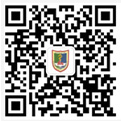On October 28, the International Biomedical Academic Symposium of the Jiangsu International Exchange Week on the Cooperation and Integration of Industry, Education, Research, and Application, hosted by the Jiangsu Provincial Department of Education and organized by Nanjing Medical University (NMU), was successfully held in Nanjing.
Attendees included Yu Weidong, Second-Level Inspector of the Jiangsu Provincial Department of Education; Professor Shen Lizong, Standing Committee Member of the CPC NMU Committee and Vice President of NMU; Professor Zhang Yinglu, Vice President of Jiangnan University; representatives from China Pharmaceutical University, Nanjing University of Chinese Medicine, Jiangnan University, Soochow University, and Yangzhou University; as well as Chinese and international supervisors, experts, scholars, and enterprise representatives.

In his opening remarks, Vice President Shen Lizong emphasized that openness and cooperation were essential for advancing scientific progress and addressing shared global challenges. He expressed the hope that the symposium would serve as a new starting point for collaboration, enabling all participants to strengthen high-level innovation platforms, foster talent development, and promote the high-quality transformation of scientific achievements, paving the way for further advances in biomedical development.

Vice President Zhang Yinglu of Jiangnan University expressed the hope that the symposium would serve as a catalyst for in-depth exchanges among experts and scholars, exploring frontier issues in biomedicine and contributing to collaborative innovation across industry, education, research and application.

Speaking on behalf of the Jiangsu Provincial Department of Education, Yu Weidong highlighted the importance of deepening international collaboration in integrating industry, education, research, and application to drive the high-quality development of China’s biomedical sector. He underscored that biomedical innovation knows no borders and that health and well-being are universal human pursuits. Jiangsu, he added, would continue to foster an open and inclusive innovation environment, enabling its expertise to shine globally through international cooperation.

During the symposium, the Jiangsu–Africa University Cooperation Alliance–Public Health Sub-alliance was officially established, marking a significant step in building the broader Jiangsu–Africa University Cooperation Alliance. This initiative strengthens Jiangsu’s integration into China’s broader opening-up strategy and the Belt and Road Initiative, fosters mutual learning between Chinese and African civilizations, and enhances people-to-people ties, opening a new chapter for higher education cooperation.

Themed “Intelligence Without Borders, Empowering the Future: Cross-Border Integration of Biomedicine and a New Landscape for Health”, the symposium featured multiple thematic panels. Nearly 30 experts and scholars from China and abroad delivered keynote presentations and engaged in in-depth discussions on related topics. The event aimed to leverage cross-border integration in biomedicine as an entry point to establish long-term mechanisms for talent co-education, team co-development, and joint research, promoting the sharing of scientific resources.
In the panel “Innovation in Biomedical Talent Cultivation and Joint Research Models under International Industry-Education-Research-Application Collaboration”, experts from the University of Alberta (Canada), Royal College of Surgeons in Ireland, Queensland University of Technology (Australia), French National Scientific Research Center, Sungkyunkwan University (Republic of Korea), National Academy of Pharmaceutical Sciences, Sorbonne University (France) shared valuable experiences in joint doctoral programs, transnational research project management, and strategies for building effective collaborative research teams.
During enterprise presentations, project showcases, and roundtable discussions, representatives from Tsukuba Technology Co., Ltd. (Japan), Nanjing Hanwei Public Health Research Institute, and Shanghai Amplicon Gene Bioscience Co., Ltd. shared cutting-edge technologies and innovative practices. The roundtable brought together leading experts from Egypt, Singapore, the United Kingdom, and New Zealand for an in-depth discussion on “the Cooperation and Challenges in Global Biomedical R&D”.

Experts from the University Medical Center Hamburg-Eppendorf (Germany), Ain Shams University (Egypt), Kabarak University (Kenya), Royal College of Physicians (UK), University of Galway (Ireland), and University of Tasmania (Australia) also presented their latest research in antibiotic discovery, treatment of neurological diseases, and multi-party biomedical collaboration, offering fresh perspectives for international cooperation in the field.

On the afternoon of October 28, Vice President Shen Lizong hosted a delegation from Kabarak University, including President Henry K. Kiplangat and Professor Titus K. Suge, Dean of the School of Pharmacy. Representatives from NMU’s Department of International Cooperation and Exchange and other related departments attended the meeting. Both sides engaged in in-depth discussions on potential areas of collaboration and agreed to focus future efforts on vaccine accessibility in Africa, innovative drug research, and faculty and student exchanges, contributing to the development of healthcare in Africa. The meeting concluded with an exchange of souvenirs in a friendly atmosphere, with both sides wishing for fruitful outcomes in the universities’ friendship and cooperation.

The event drew over 200 participants from more than 20 countries and regions, including the United Kingdom, Canada, France, Australia, Egypt, Kenya, and Japan, comprising Chinese and international supervisors, experts, scholars, enterprise representatives, and university faculty and students. Attendees explored cross-border integration and innovative development in biomedicine, establishing a dynamic academic platform for international collaboration and exchange. The symposium has provided strong momentum for Jiangsu’s efforts to build a globally influential hub for biomedical innovation and a high-level, internationally oriented education system.

(Drafted and Photographed by the Department of International Cooperation and Exchange; Translated by Zhang Bei; Reviewed by Chen Yun and Wu Wei)



